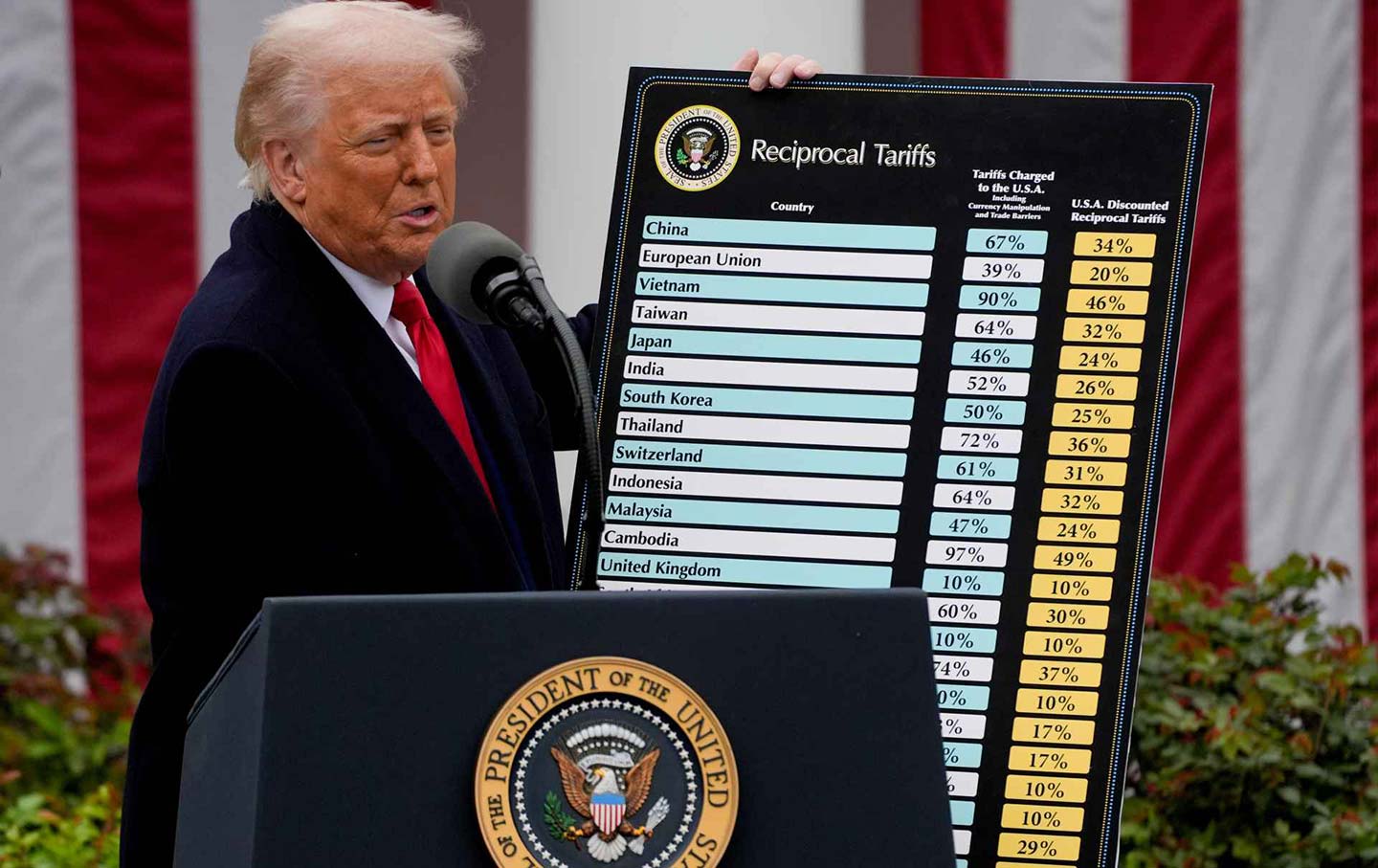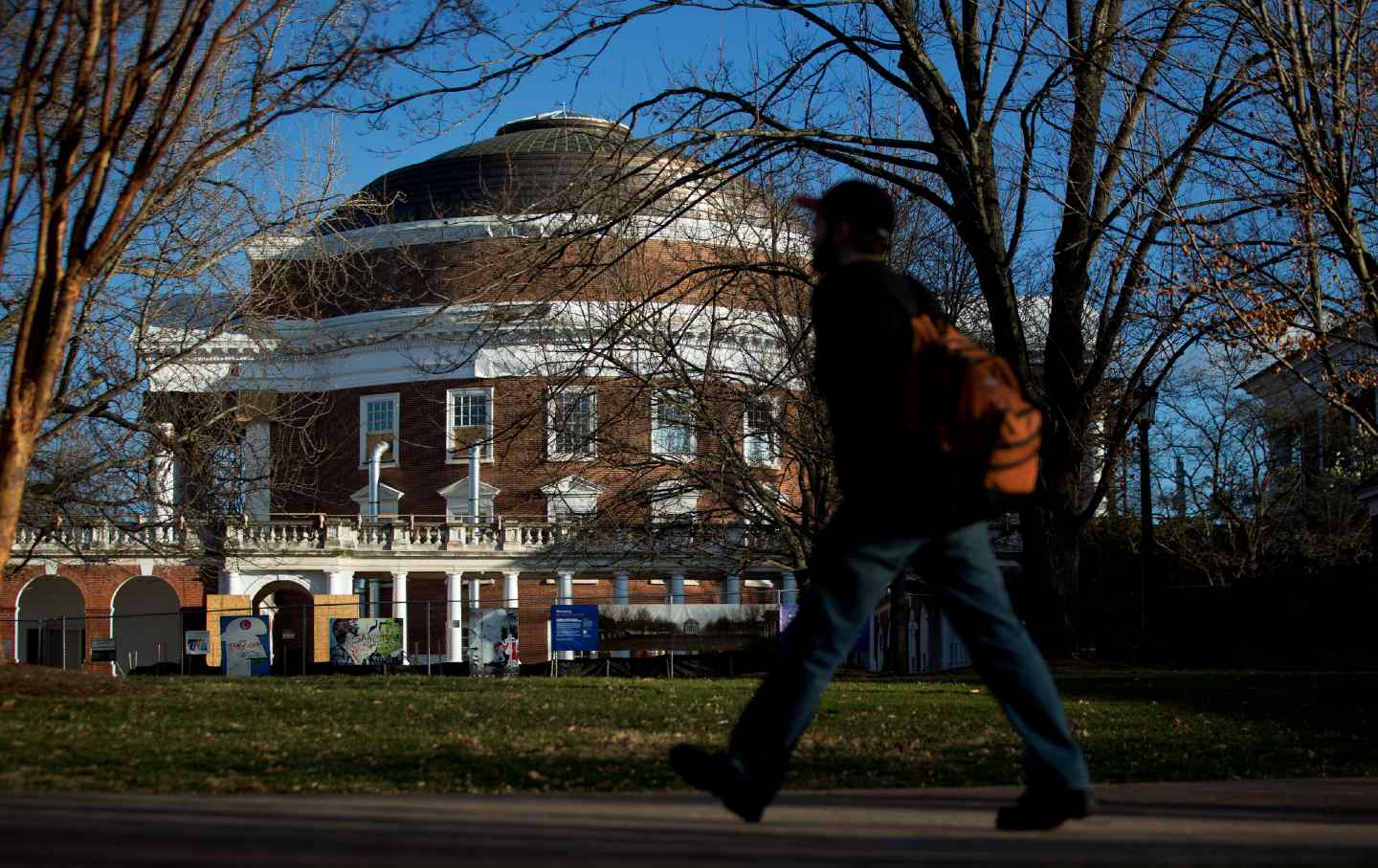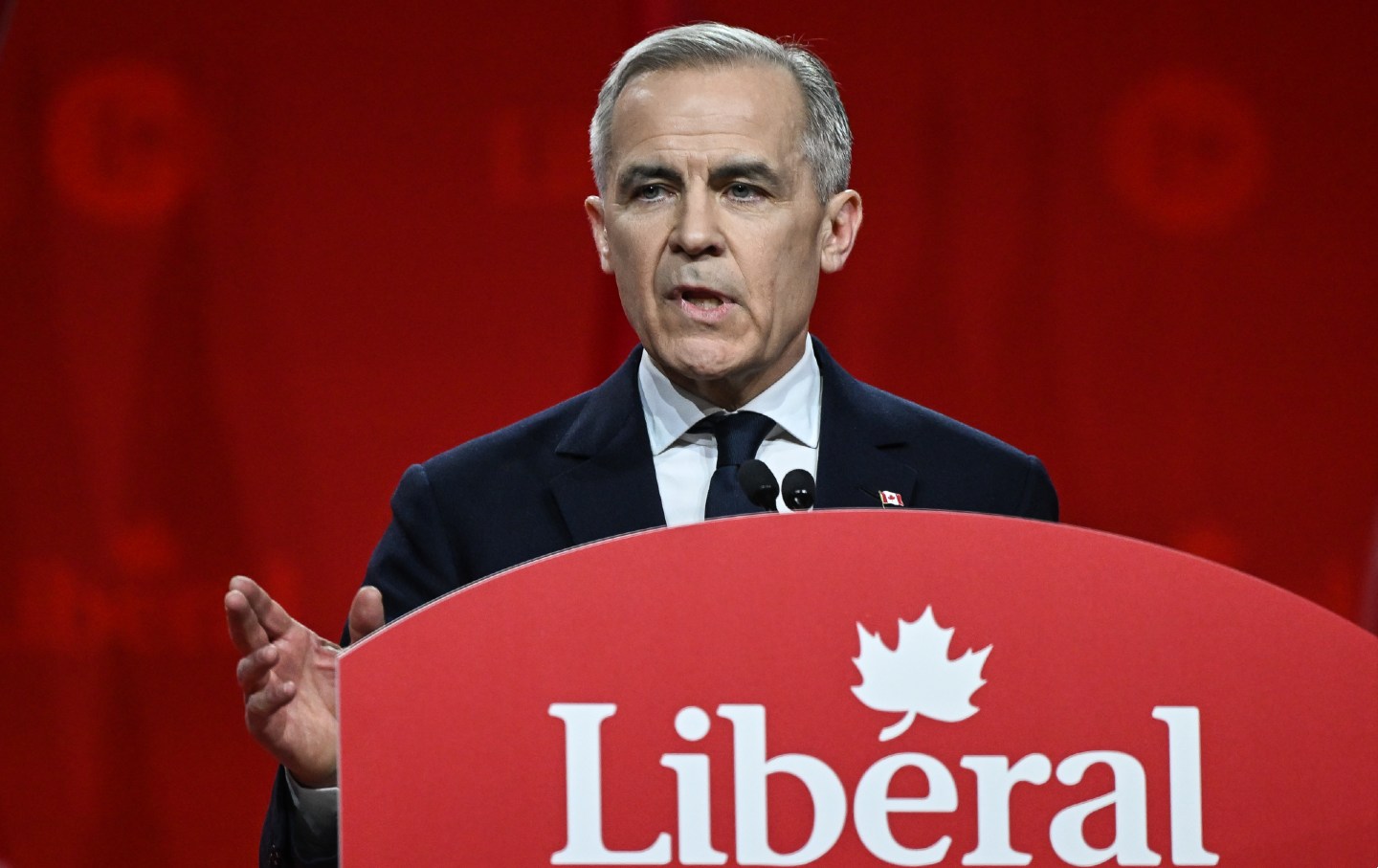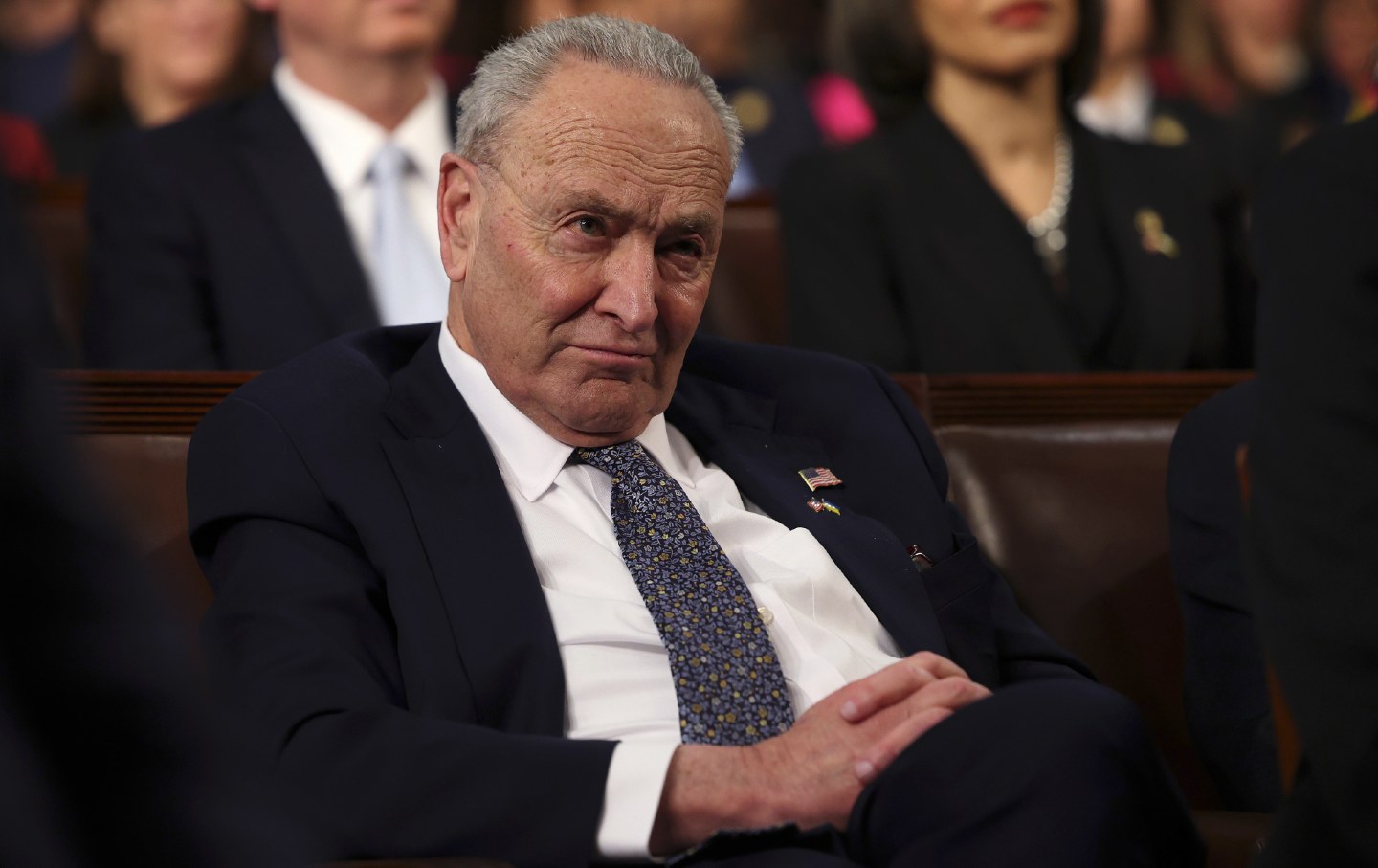If Narendra Modi Is Running a Global Death Squad, He’ll Be Protected by the Kissinger Doctrine
Trying to murder American citizens on American soil is no big deal—so long as the foreign policy elite likes you.
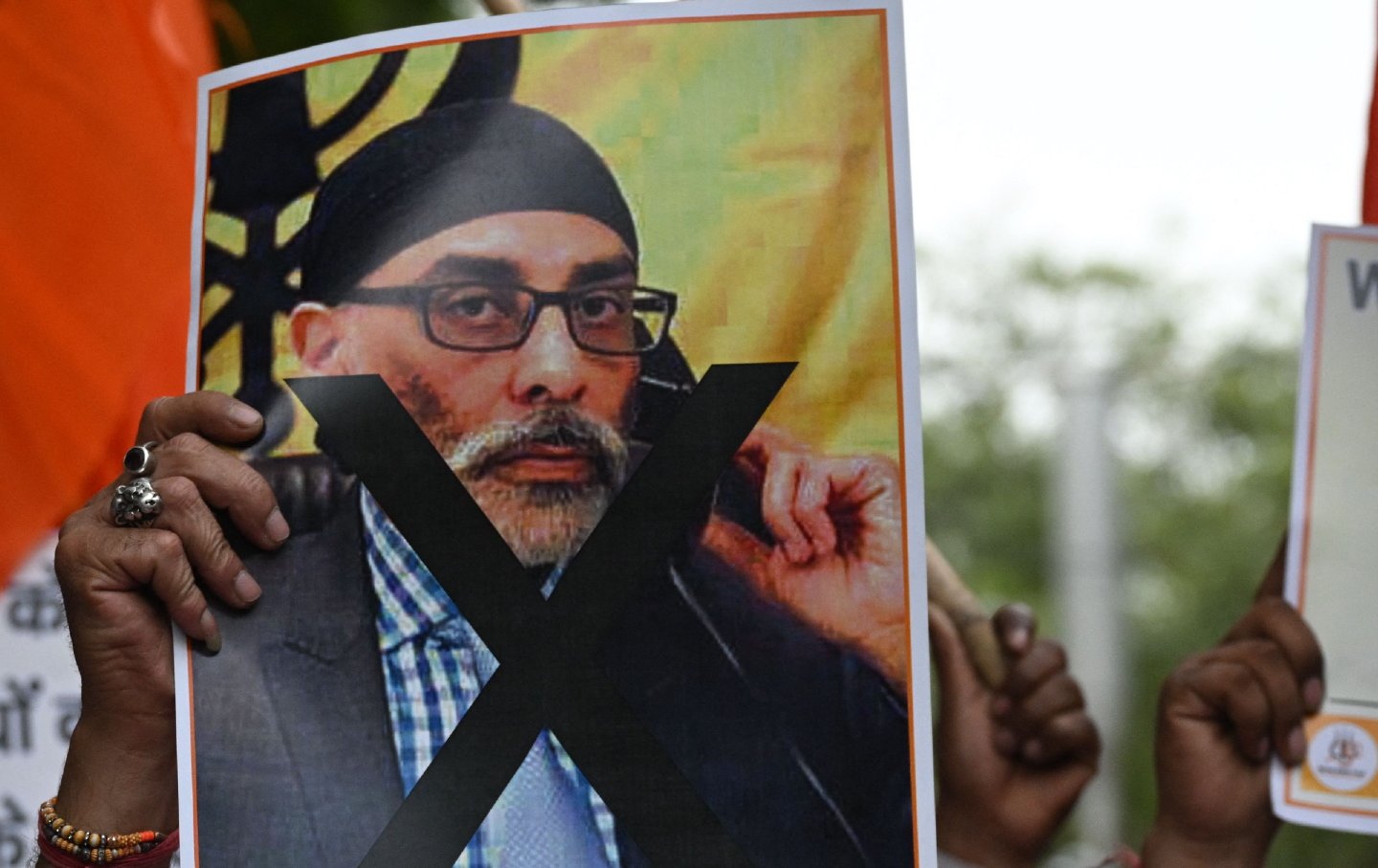
On June 18, 2023, Hardeep Singh Nijjar, a Canadian active in the cause of Sikh separatism in his native India, was shot to death in the parking lot of a temple in Surrey, British Columbia. On September 18, Prime Minister Justin Trudeau addressed the Canadian Parliament and made the stunning claim that “Canadian security agencies have been actively pursuing credible allegations of a potential link between agents of the Government of India and the killing of a Canadian citizen, Hardeep Singh Nijjar.” The Indian government vehemently denied the claim, but Trudeau said his government would present evidence after a fuller investigation.
On Wednesday the United States District Court for Southern New York unsealed a startling indictment that supports Trudeau’s accusation—and suggests that the Nijjar killing was part of something much larger. Based on the case presented in the indictment as well as reporting done since Trudeau’s claim, there is reason to believe that the government of Indian Prime Minister Narendra Modi is running a global assassination squad plotting the death of political activists in the Indian diaspora.
According to the unsealed indictment, along with the killing of Nijjar, a parallel and intertwined murder scheme, carried out at the behest of an Indian government employee, was coming to fruition in the United States. The indictment details an elaborate plot carried out by an unnamed “Indian field officer” and an Indian national named Nikhil Gupta, who is currently under arrest for murder for hire and conspiracy to commit murder for hire.
The narrative alleged in the indictment reads like a mixture of a John Le Carré spy novel and an Elmore Leonard crime farce: In May, an Indian field agent contacted Gupta to act as a middle man by hiring a hit man to assassinate Gurpatwant Singh Pannun, an American citizen and general counsel for the New York–based group Sikhs for Justice. Pannun is, like Nijjar, a supporter of a separate Sikh state (to be called Khalistan). Gupta then met with two contacts who he thought were hit men—but were actually an undercover law enforcement agent with the Drug Enforcement Agency (DEA) and a DEA informant. On June 9, acting as a conduit, Gupta gave $15,000 to the DEA agent as a down payment for a planned murder. On June 12, Gupta told the DEA informant that after the murder of Pannun, “we will give more bigger job, more, more job every month, every month 2-3 job.” (This is a verbatim quote from the indictment.) On June 12, Gupta told the informant there was a “big target in Canada.” On June 18, within hours of Nijjar’s murder, the Indian field officer sent Gupta “a video clip that showed Nijjar’s bloody body slumping in his vehicle.” Gupta replied to the effect “that he wished he had personally conducted the killing.”
Shortly after receiving it, Gupta forwarded this video to the DEA informant. The next day, Gupta told the DEA agent that Nijjar “was also the target” and “we have so many targets.” Gupta was arrested in the Czech Republic later that month and extradited to the United States.
There is evidence to suggest Nijjar and Pannun were only the tip of the iceberg in terms of Sikhs being targeted by the Indian government. The Intercept reports that at least two other American Sikhs were notified by the FBI that they were potential assassination targets. Moreover: “The Indian government’s intelligence agency, the Research and Analysis Wing, or RAW, has been planning assassinations targeting Sikh and Kashmiri activists living in foreign countries, according to secret Pakistani intelligence assessments leaked to The Intercept.” The family of Avtar Singh Khanda, a Khalistan activist who died in Birmingham earlier this year, also suspects foul play and has called for an inquest into his death.
Of course, all these cases—an indictment still to be tested in court, leaked intelligence assessments, a family’s call for an inquest—have to be treated skeptically until they are verified. But taken together, they add up to a disturbing pattern, one that suggests an assassination ring truly global in scope, operating in Pakistan, the United Kingdom, Canada, and the United States. Aside from Sikhs, the assassination ring also seems to be targeting Kashmaris living outside India.
The American government certainly thinks that these cases add up to a problem. The Washington Post reports that a string of high-level government officials—President Joe Biden, Secretary of State Antony Blinken, national security adviser Jake Sullivan, and Central Intelligence Agency head William Burns—have all confronted their Indian counterparts about the alleged assassination plots. The newspaper quotes a government official who says that in a September meeting with Modi during the Group of 20 summit, Biden underscored that this was a serious matter and emphasized “the potential repercussions for the bilateral relationship were similar threats to persist.”
Biden’s private rebuke seems like a weak slap on the wrist, as do the other closed-door warnings given by his government. After all, the Indian government might be attempting to kill American citizens on American soil, as well as killing people in at least three other countries. Biden’s response is simply to say stop doing this or we won’t be friends.
On this matter, Biden is operating from realpolitik principles whereby the safety of ordinary citizens is outweighed by the imperatives of the national security state. As The Washington Post notes, “The new indictment could complicate the Biden administration’s efforts to deepen strategic ties with India as a counterweight to China. But some analysts say that Washington’s geopolitical courtship of New Delhi supersedes the concerns it has—at least for now—about the Indian government’s crackdown on Sikhs and other minorities and Modi’s tilt toward illiberalism.”
If Biden did want to issue a stern public rebuke to India for running a global death squad, he might find that he doesn’t have a leg to stand on. After all, under the auspices of the Global War on Terror, the United States itself has committed kidnapping and assassination on a vast scale, albeit with drones and special ops rather than hired hit men. Further, the US has often turned a blind eye to assassinations carried out by prized allies such as Saudi Arabia and Israel. If India is acting as if international law has no meaning, then it was taught that lesson by the world’s largest superpower.
On the other hand, if Biden decided to keep Modi’s assassination ring between friends, he’d only be following the precedent set by Henry Kissinger, the recently deceased former secretary of state. From 1975 to 1983, the United States backed Operation Condor, an international assassination program run by right-wing dictatorships in South America, led by the Chile of Augusto Pinochet with the collaboration of the governments of Argentina and Uruguay. One of the most notorious Operation Condor crimes was the assassination on September 21, 1976, of former Chilean foreign minister Orlando Letelier and his coworker Ronni Moffitt. They were killed in a car explosion in Washington, D.C.
Popular
“swipe left below to view more authors”Swipe →This June, journalist James Risen presented plausible evidence in The Intercept that Henry Kissinger, secretary of state when Operation Condor started and when the assassination of Letelier took place, helped pave the way for the killings.
The roles of Henry Kissinger and Richard Nixon in fomenting the 1973 coup that brought Pinochet to power are well-known. By 1975, when Nixon had been replaced by Gerald Ford, the Pinochet regime was increasingly under criticism from the American Congress. Letelier had been secretly interviewed by the committee headed by Senator Frank Church that was investigating CIA wrongdoing.
The criticisms of Pinochet forced Kissinger to make a public show of respecting human rights. Kissinger traveled to Chile in June 1976 to deliver a speech voicing concern about the regime’s treatment of political opponents. But Kissinger also met privately on June 8 with Pinochet to assure the dictator that the speech was only political theater and that the American government approved of Pinchot’s regime. During this conversation, Pinochet complained, “Letelier has access to the Congress.” It’s unclear if Pinochet knew about the secret testimony to the Church Committee.
As James Risen notes, “Given the context of the meeting, during which Kissinger signaled to Pinochet that the Ford administration was not going to penalize him for his regime’s human rights record, Kissinger’s silence in the face of Pinochet’s complaints about Letelier must have been viewed by Pinochet as a green light to take brutal action against the dissident.”
On September 16, 1976, Kissinger blocked a plan by the State Department to warn Latin American governments not to proceed with Operation Condor. Five days later, Letelier and Moffitt were dead.
In a statement on Kissinger’s death, President Biden recalled the first briefing he had with the late secretary of state. “Throughout our careers, we often disagreed,” Biden wrote. “And often strongly. But from that first briefing—his fierce intellect and profound strategic focus was evident.”
Modi’s alleged assassination ring is a modern-day counterpart to Operation Condor. The open question is whether Biden will use this opportunity to disagree with Kissinger—or continue to be blinded by his supposedly “profound strategic focus.”


